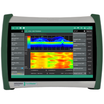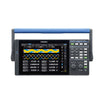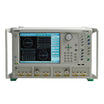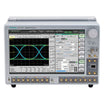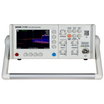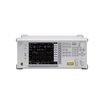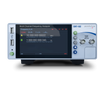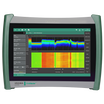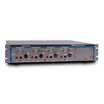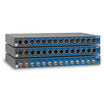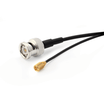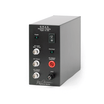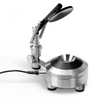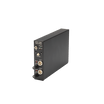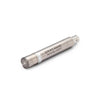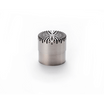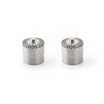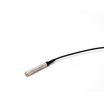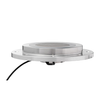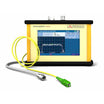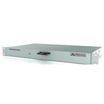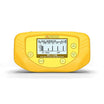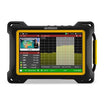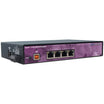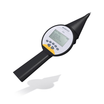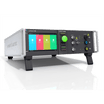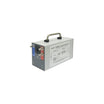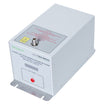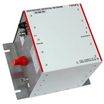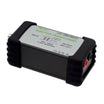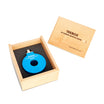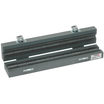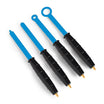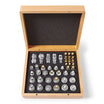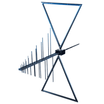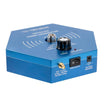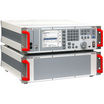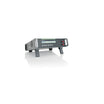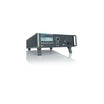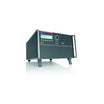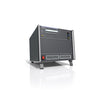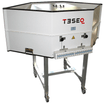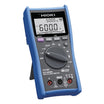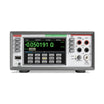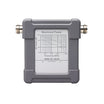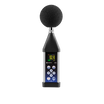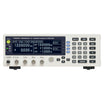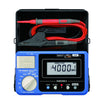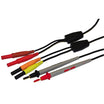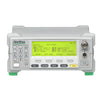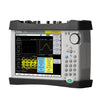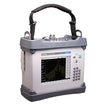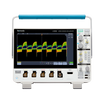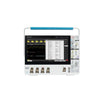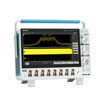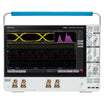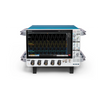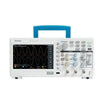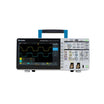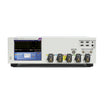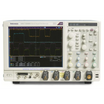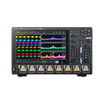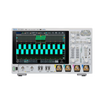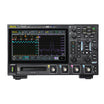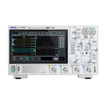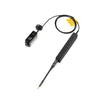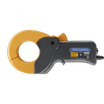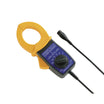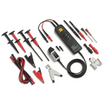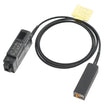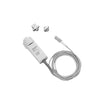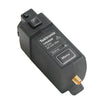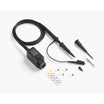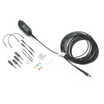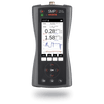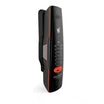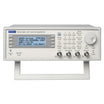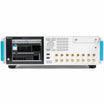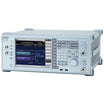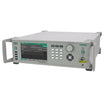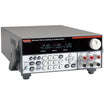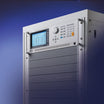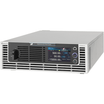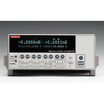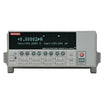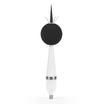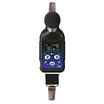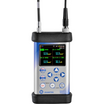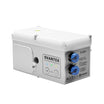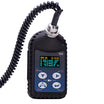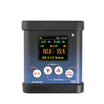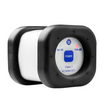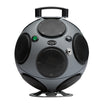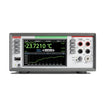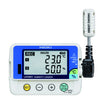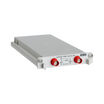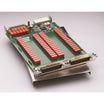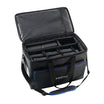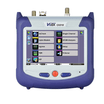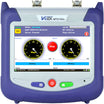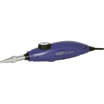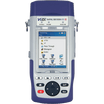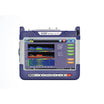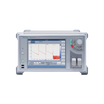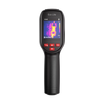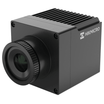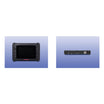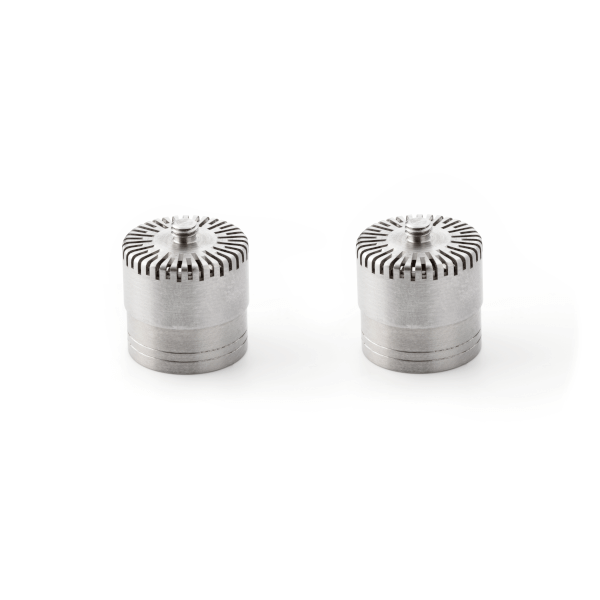
GRAS 40GI 1/2" Prepolarized Intensity Microphone Pair
Use our chat for technical support or contact us via +45 31 33 18 19 or salg@GOmeasure.dk
The 40GI microphone pair consists of two phase-matched free-field condenser microphones with extremely well-controlled phase characteristics for use in sound-intensity probes. Their standard mounting threads make them compatible with all the usual available makes of measurement-microphone preamplifiers.
Discover the possibilities
More information
Description
GRAS 40GI 1/2" Prepolarized Intensity Microphone Pair
Introduction
The 40GI microphone pair consists of two phase-matched free-field condenser microphones with extremely well-controlled phase characteristics for use in sound-intensity probes. Their standard mounting threads make them compatible with all the usual available makes of measurement-microphone preamplifiers.As a microphone pair, the free-field frequency response of the 40GI complies with IEC 61043 1993 Class 1 and IEC 60651 Type 1 in the range from 20 Hz to 10 kHz.
Two 40GI microphones are included in the 40GK microphone kit, which is used in the GRAS CCP Sound Intensity Probe Type 50GI.
40GI is individually factory-calibrated and delivered with a calibration chart stating its specific open-circuit sensitivity and pressure frequency response.
Typical applications and use
The 40GI is designed for sound-intensity and sound-power measurements, as well as sound-source localization, which is why it is included in the 50GI probe. Each 40GI microphone pair is phase matched according to the phase specifications for a Class 1 Sound Intensity Probe in accordance with international IEC 61043, Electroacoustics - Instruments for the Measurement of Sound Intensity - Measurements with Pairs of Pressure Sensing Microphones, 1993.The quality of a sound intensity probe microphone is its ability to measure the real part of a complex sound intensity in highly reactive sound fields as well as in sound fields exposed to high levels of background noise. This ability depends largely on the phase responses of the microphone pair. The individual phase matching of each 40GI ensures that any differences in phase responses are extremely small.
The 40GI is also used for ranking of sound sources. When mounted in a sound-intensity probe such as the 50GI, the microphones can pinpoint the area generating the most noise, which may then require additional measurements, depending on the measurement procedures and processes used. The sound-intensity microphones reveal the weak and strong points when identifying noise sources. Sound-source ranking is useful as long as the background noise doesn't exceed the noise source.
Compatibility
The 40GI requires a standardized ¼" CCP preamplifier and an input module that supports this technology. GRAS recommends using the GRAS 26CB preamplifier.When used in the 50GI Sound-Intensity Probe, the 40GI is combined with the 26CB ¼" CCP preamplifier.
System verification
For daily verification and check of your measurement setup, we recommend using a calibrator like GRAS 42AG Sound Calibrator.For proper sensitivity calibration, we recommend using a pistonphone like GRAS 42AP Intelligent Pistonphone.
Calibration
When leaving the factory, all GRAS microphones have been calibrated in a controlled laboratory environment using traceable calibration equipment. Depending on the use, measurement environment and internal quality control programs we recommend that the microphone is recalibrated at least once a year.We offer two kinds of calibration as an optional after-sales service: GRAS Traceable Calibration and GRAS Accredited Calibration.
GRAS Traceable Calibration is a traceable calibration performed by trained personnel under controlled conditions according to established procedures and standards. This is identical to the rigorous calibration that all GRAS microphones are subjected to as an integral part of our quality assurance.
GRAS Accredited Calibration is performed by the GRAS Accredited Calibration Laboratory that has been accredited in accordance with ISO 17025 by DANAK, the Danish Accreditation Fund.
If you want a new microphone set delivered with an accredited calibration in stead of the default factory calibration, specify this when ordering.
Learn more at gras/calib.
Quality and warranty
All GRAS microphones are made of high-quality materials that will ensure life-long stability and robustness. The microphones are all assembled in verified clean-room environments by skilled and dedicated operators with many years of expertise in this field.The microphone diaphragm, body, and improved protection grid are made of high-grade stainless steel, which makes the microphone resistant to physical damage, as well as corrosion caused by aggressive air or gasses.
This, combined with the enforced gold-plated microphone terminal which guarantees a highly reliable connection, enables GRAS to offer 5 years warranty against defective materials and workmanship.
Service
If you accidentally damage the diaphragm on a GRAS microphone, we can—in most cases—replace it at a very reasonable cost and with a short turn-around time. This not only protects your investment, but also pleases your quality assurance department because you don't have to worry about new serial numbers, etc.Specifications
Documents
GRAS 40GI 1/2" Prepolarized Intensity Microphone Pair
GRAS 40GI 1/2" Prepolarized Intensity Microphone Pair datasheetOptions
Video
GRAS 40GI 1/2" Prepolarized Intensity Microphone Pair
Introduction
The 40GI microphone pair consists of two phase-matched free-field condenser microphones with extremely well-controlled phase characteristics for use in sound-intensity probes. Their standard mounting threads make them compatible with all the usual available makes of measurement-microphone preamplifiers.As a microphone pair, the free-field frequency response of the 40GI complies with IEC 61043 1993 Class 1 and IEC 60651 Type 1 in the range from 20 Hz to 10 kHz.
Two 40GI microphones are included in the 40GK microphone kit, which is used in the GRAS CCP Sound Intensity Probe Type 50GI.
40GI is individually factory-calibrated and delivered with a calibration chart stating its specific open-circuit sensitivity and pressure frequency response.
Typical applications and use
The 40GI is designed for sound-intensity and sound-power measurements, as well as sound-source localization, which is why it is included in the 50GI probe. Each 40GI microphone pair is phase matched according to the phase specifications for a Class 1 Sound Intensity Probe in accordance with international IEC 61043, Electroacoustics - Instruments for the Measurement of Sound Intensity - Measurements with Pairs of Pressure Sensing Microphones, 1993.The quality of a sound intensity probe microphone is its ability to measure the real part of a complex sound intensity in highly reactive sound fields as well as in sound fields exposed to high levels of background noise. This ability depends largely on the phase responses of the microphone pair. The individual phase matching of each 40GI ensures that any differences in phase responses are extremely small.
The 40GI is also used for ranking of sound sources. When mounted in a sound-intensity probe such as the 50GI, the microphones can pinpoint the area generating the most noise, which may then require additional measurements, depending on the measurement procedures and processes used. The sound-intensity microphones reveal the weak and strong points when identifying noise sources. Sound-source ranking is useful as long as the background noise doesn't exceed the noise source.
Compatibility
The 40GI requires a standardized ¼" CCP preamplifier and an input module that supports this technology. GRAS recommends using the GRAS 26CB preamplifier.When used in the 50GI Sound-Intensity Probe, the 40GI is combined with the 26CB ¼" CCP preamplifier.
System verification
For daily verification and check of your measurement setup, we recommend using a calibrator like GRAS 42AG Sound Calibrator.For proper sensitivity calibration, we recommend using a pistonphone like GRAS 42AP Intelligent Pistonphone.
Calibration
When leaving the factory, all GRAS microphones have been calibrated in a controlled laboratory environment using traceable calibration equipment. Depending on the use, measurement environment and internal quality control programs we recommend that the microphone is recalibrated at least once a year.We offer two kinds of calibration as an optional after-sales service: GRAS Traceable Calibration and GRAS Accredited Calibration.
GRAS Traceable Calibration is a traceable calibration performed by trained personnel under controlled conditions according to established procedures and standards. This is identical to the rigorous calibration that all GRAS microphones are subjected to as an integral part of our quality assurance.
GRAS Accredited Calibration is performed by the GRAS Accredited Calibration Laboratory that has been accredited in accordance with ISO 17025 by DANAK, the Danish Accreditation Fund.
If you want a new microphone set delivered with an accredited calibration in stead of the default factory calibration, specify this when ordering.
Learn more at gras/calib.
Quality and warranty
All GRAS microphones are made of high-quality materials that will ensure life-long stability and robustness. The microphones are all assembled in verified clean-room environments by skilled and dedicated operators with many years of expertise in this field.The microphone diaphragm, body, and improved protection grid are made of high-grade stainless steel, which makes the microphone resistant to physical damage, as well as corrosion caused by aggressive air or gasses.
This, combined with the enforced gold-plated microphone terminal which guarantees a highly reliable connection, enables GRAS to offer 5 years warranty against defective materials and workmanship.

